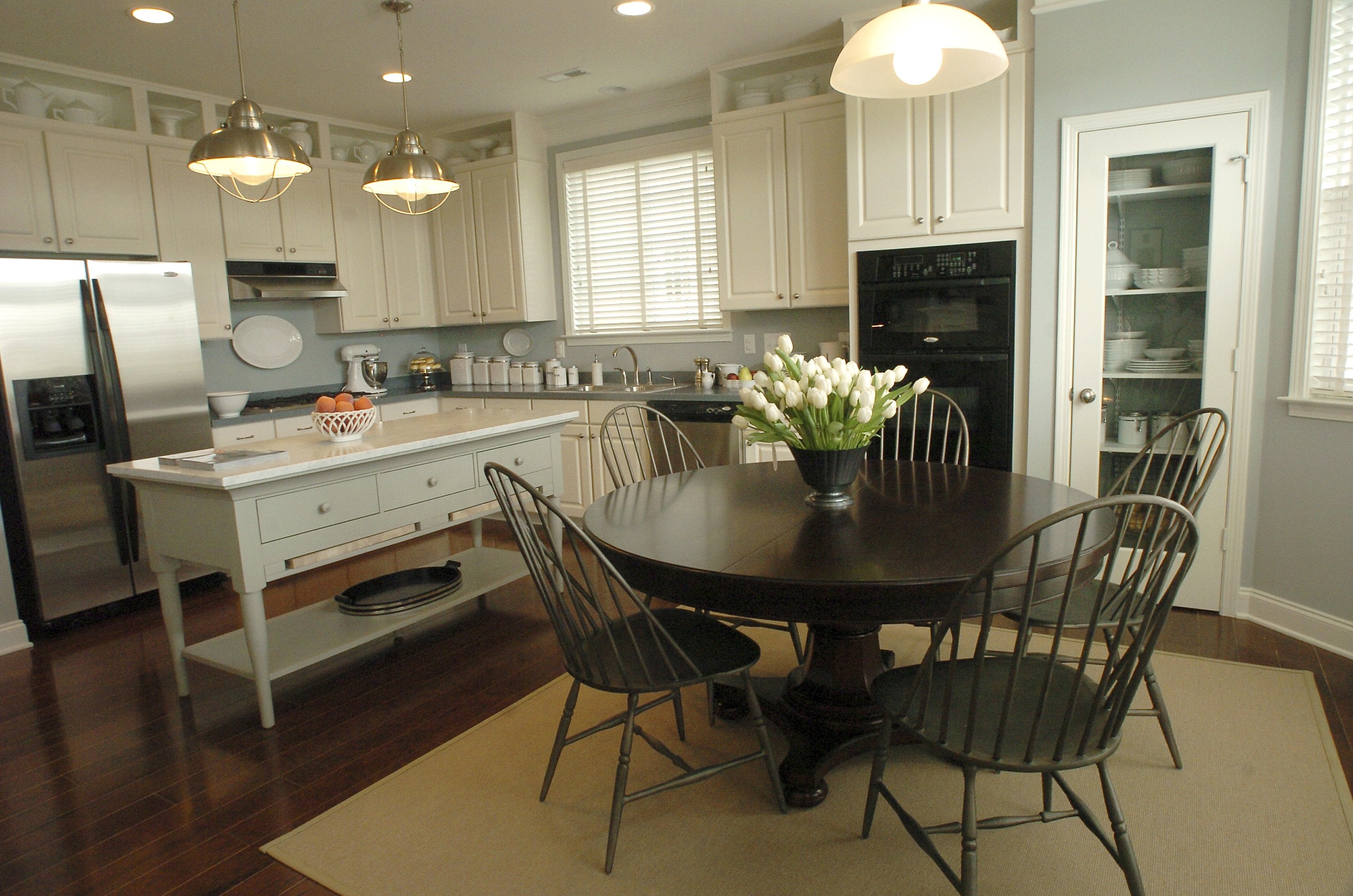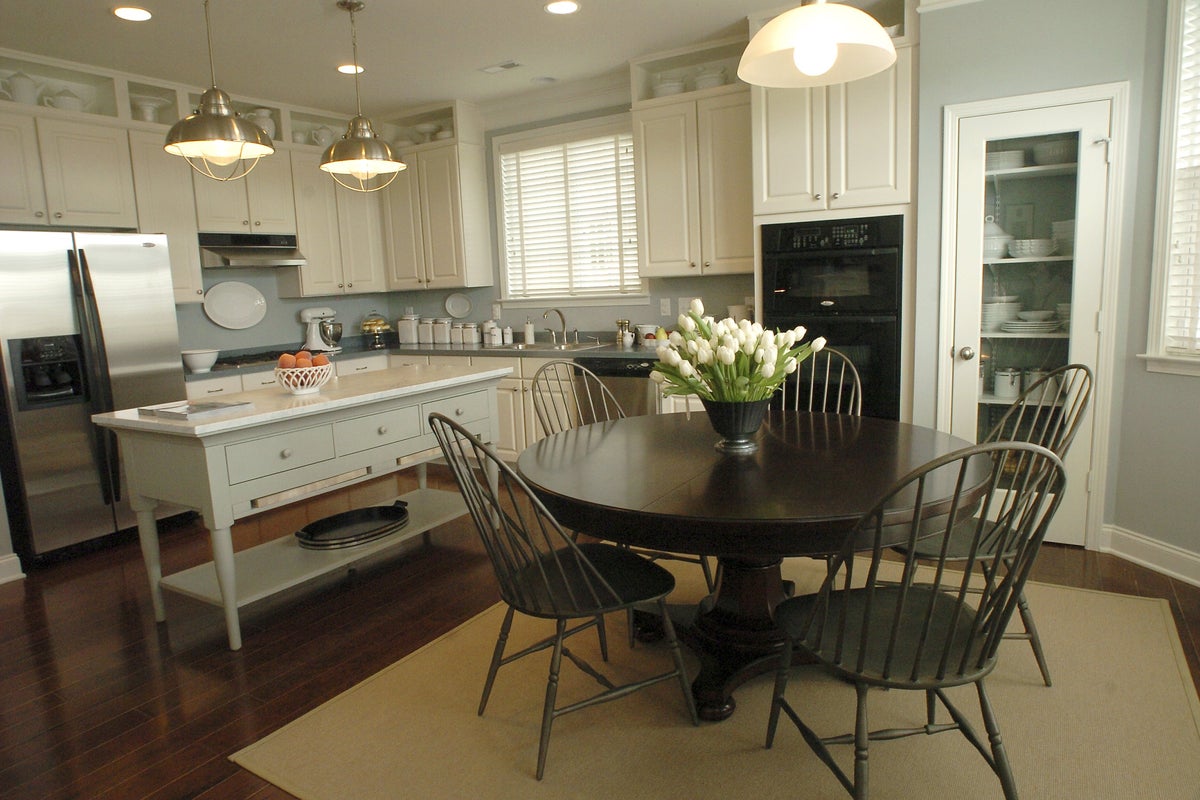- Lifestyle
Round tables may have a social advantage over rectangular ones
Carsen Holadayin New YorkThursday 27 November 2025 12:00 GMTComments open image in galleryCircular tables create a more egalitarian seating arrangement for guests without a head of the table (Getty Images)
open image in galleryCircular tables create a more egalitarian seating arrangement for guests without a head of the table (Getty Images)
Stay ahead of the curve with our weekly guide to the latest trends, fashion, relationships and more
Stay ahead of the curve with our weekly guide to the latest trends, fashion, relationships and more
Stay ahead of the curve with our weekly guide to the latest trends, fashion, relationships and more
 Email*SIGN UP
Email*SIGN UPI would like to be emailed about offers, events and updates from The Independent. Read our Privacy notice
The Knights of the Round Table were on to something when it comes to lively gatherings, experts say — and it’s a trick that could ease your potentially fraught family Thanksgiving.
While guests to a shared meal could bring a card game or a bottle of wine to keep conversation flowing, social psychology says that your dining room furniture might also seal the deal. A round dining room table can create a welcoming and comfortable environment that invites people to relax and connect with their supper companions.
So instead of being trapped at a long table between your drunk uncle and the dry turkey your mom is worrying over — or getting roped into shouting across the table about politics or whether or not you want kids — you could instead take a trip to Ikea or do some last-minute shopping on Facebook Marketplace to find a circular fix to your tense seating arrangement.
A study published in the Journal of Environmental Psychology said that even subconsciously, consumers are drawn to circular shapes because they evoke feelings of harmony and nostalgia, as opposed to angular shapes, which cause distance. The circle bringing up feelings of comfort has influenced designs for logos such as Target and indulgent foods like chocolate. However, a rounded place setting brings more to the table than just the advantages of its shape.
Based on aesthetics alone, a round table creates more harmony in a group dynamic by eliminating a head of the table and putting each guest on equal ground, bringing a sense of natural balance. King Arthur had knights sit at his round table in one of history’s most iconic meeting points of fellowship and equality — setting the scene for no member of the kingdom to have higher status than any other, perhaps pointing to a model that could now create community in new social settings and squash conflicts at family dinners.
 open image in galleryIt might be time to say goodbye to your rectangular table for Thanksgiving (Getty Images/iStockphoto)
open image in galleryIt might be time to say goodbye to your rectangular table for Thanksgiving (Getty Images/iStockphoto) open image in galleryCircular tables create a more egalitarian seating arrangement for guests without a head of the table (Getty Images)
open image in galleryCircular tables create a more egalitarian seating arrangement for guests without a head of the table (Getty Images)Eating family style around a table also increases connection and communication by allowing everyone to face each other, often putting dinner guests in close proximity to each other. The closeness, as well as the equidistance from the center of the table, allows personal conversations to flow without anyone craning their neck or yelling across the table. It also encourages people to maintain eye contact during conversations, which is an automatic rapport booster as it signals interest and shows the talker that you are listening and engaged.
Hosts might also opt for a round table due to the space it saves in a dining room. However, even with a drop-leaf or extendable setting, round tables often seat about six people at maximum, meaning there could be a limit on the dinner’s invitation list. But on the bright side, smaller parties increase the chances of guests getting to know each other and conversation flowing naturally between the group.
While brands like Starbucks use round tables to encourage customers to linger, and companies gather around them to foster more open, comfortable conversations among employees, you don’t need a corporate strategy to feel their impact. Sometimes, all it takes is a trip to the furniture store.
More about
guestsConversationsdinner partyJoin our commenting forum
Join thought-provoking conversations, follow other Independent readers and see their replies
Comments


